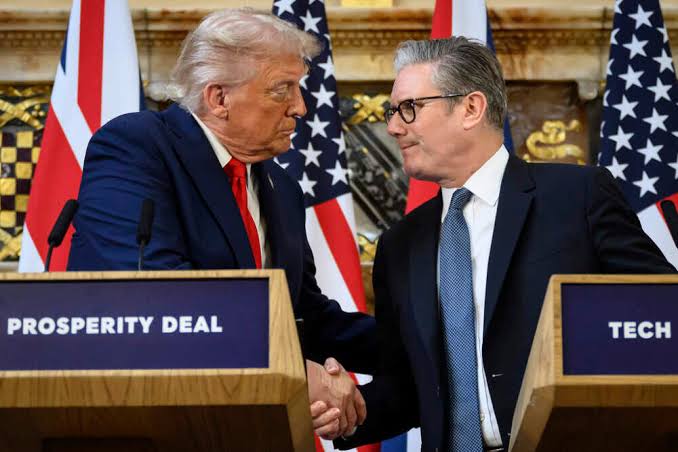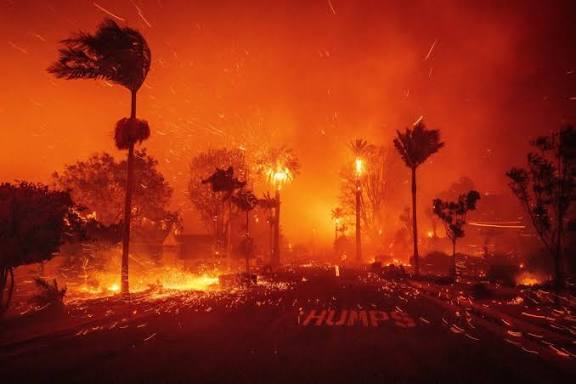Why UK, Canada & Australia Recognizing Palestine Changes Everything

The two-state solution is an internationally supported formula for peace between Israel and Palestinians. Today we will discuss about Why UK, Canada & Australia Recognizing Palestine Changes Everything
Why UK, Canada & Australia Recognizing Palestine Changes Everything
On 21 September 2025, a landmark decision reshaped decades of Western diplomatic policy: the United Kingdom, Canada, and Australia formally recognized the State of Palestine. These three have long been staunch allies of Israel, and their recognition represents a watershed moment in how the Israeli-Palestinian conflict is being addressed (or, as many see it, reframed) on the world stage.
This is not just a symbolic act. It is a shift with potential legal, political, moral, and practical ramifications. Below, I trace how we got here, what this recognition means, and what could follow — both opportunities and risks.
Background: The Path to Recognition

To understand why this matter matters, we need to remember where things have stood.
Long-standing policy: Recognition contingent on peace
Historically, many Western democracies — including the UK, Canada, and Australia — have supported the idea of Palestinian statehood but conditioned recognition on a peace agreement between Palestinians and Israelis. In other words, official statehood and full recognition were often seen as outcomes of negotiation.
They also emphasized a two-state solution: a sovereign Palestinian state alongside a secure Israel. But as the years passed, many governments have expressed frustration over what they perceive to be Israeli settlement expansion in the West Bank, continued conflict, and the humanitarian toll in Gaza, arguing that conditions on the ground were eroding the possibility of a viable two-state solution.
Build-up: Domestic pressure & changing global consensus
Several factors pushed these countries toward recognition:
-
Public opinion: The humanitarian crisis in Gaza, images of civilian casualties, and displacement have stirred public outcry in many Western democracies. This has put pressure on governments to take clearer stances.
-
International law and multilateral institutions: UN resolutions, advisory opinions (e.g. about the occupation), legal arguments about self-determination, annexation, and humanitarian law have gained more visibility.
-
Diplomatic frustrations: Many in these countries feel that diplomatic pressure without recognition has failed to stop certain policies (settlement expansion, checkpoints, restrictions in Gaza etc.) that make the two-state solution increasingly unworkable. Recognition is being seen as one tool among others to re-energize peace diplomacy.
The actual developments
-
Canada’s PM Mark Carney formally recognised Palestine, offering partnership in building peace.
-
Australia, under Prime Minister Anthony Albanese, jointly with Foreign Minister Penny Wong, also recognised Palestine, signaling that Hamas must have no role in future governance and highlighting the need for reforms.
-
In the UK, PM Keir Starmer announced formal recognition, citing the need to “revive hope for peace” for Israelis and Palestinians. The UK government had earlier set conditions (such as a ceasefire, halt to settlement expansion etc.) and had warned that recognition could come if those conditions were not met.
What Does Recognition Mean — Legally, Politically, Symbolically
It is important to unpack what “recognition of statehood” implies in international relations, and what the specific implications are here.
Legal implications
-
Statehood under international law: Recognizing Palestine as an independent state by these prominent Western democracies contributes to the argument that Palestine possesses attributes of statehood (defined territory, population, government, capacity to enter into relations with other states). This can strengthen Palestine’s standing in multilateral bodies, possibly expand its legal rights or access (for instance at the International Criminal Court or other bodies).
-
Binding relations: Formal recognition enables diplomatic relations, possibly embassies, signals that these states consider Palestine as capable of entering into treaties, receiving diplomatic missions, etc. Australia already mentioned that it would consider opening embassies as the Palestinian Authority makes progress on commitments.
-
International obligations: Once recognized, obligations under international law towards that state (e.g. with respect to non-refoulement, human rights, humanitarian law etc.) may be more concretely asserted. Also, recognition by such countries increases expectations of compliance with international norms by all parties.
Political implications
-
Shifting the diplomatic balance: By recognizing Palestine, the UK, Canada, and Australia move from a position of waiting for peace negotiations to actively shaping the diplomatic frame. They place increased pressure on Israel (and on the United States) to respond — whether by opening negotiations, ceasing certain actions, or making concessions.
-
Internal governance of Palestine: The recognition by these states often comes with expectations: the Palestinian Authority is being asked to commit to reforms, hold elections (excluding Hamas), demilitarize aspects of governance, ensure accountability etc. These conditions, rightly or wrongly, may influence internal politics among Palestinians.
-
Effect on US-led diplomacy: The United States has often played a central role in mediating the conflict. These recognitions dilute the monopoly of the US in defining the terms of peace. It may force the US to adjust its policies, or at least respond to this growing consensus.
Symbolic & moral significance
-
Affirmation of Palestinian identity and rights: Recognition affirms the Palestinian people’s right to self-determination. It is an acknowledgement of decades of struggle and suffering, and of a national identity recognized by the international community.
-
Moral demonstration: For many, the moral weight of recognising a state weighs heavily — especially when civilian suffering, displacement, and loss of life have become central in the global picture. It can help restore credibility for the recognizing countries among communities that felt previous policies were insufficient or too passive.
-
Historical redress, especially for the UK: Given Britain’s colonial legacy in Palestine (as the mandatory power until 1948), the UK’s recognition has particular historical significance. It is, for many, a way of acknowledging past promises, responsibilities, or failures.
Why the Timing Matters
The timing of this recognition is hardly coincidental. Several recent developments make this moment especially potent.
-
Gaza war & humanitarian crisis: The war in Gaza, which followed Hamas’s October 2023 attack, has resulted in tens of thousands of Palestinian civilian deaths, widespread displacement, and immense destruction. Many international actors see that the conflict risks leaving nothing viable for a two-state solution unless action is taken.
-
Erosion of two-state solution in practice: Settlement expansion in the West Bank, legal and infrastructural controls, restrictions on movement, and aspects of occupation have led observers (including in these recognizing countries) to conclude that the possibility of a meaningful, contiguous, viable Palestinian state is being undermined on a daily basis. Recognition is seen as an effort to arrest this decline.
-
International pressure & changing norms: Over 140 countries already recognised Palestine before this move. As more states shift, the recognition becomes less exceptional and more a reflection of international consensus. This, in turn, changes expectations on those who have hesitated.
-
Domestic politics in recognizing countries: Leaders in these countries face domestic pressures: from constituents demanding human rights-oriented foreign policy, from civil society activism, from diaspora communities. In some cases, governments had made recognition conditional and warned of such a step. Once certain “red lines” (e.g. ceasefire, end of settlement expansion, or governance reform) were judged unmet, they shifted toward recognition.
Potential Consequences
This recognition has already stirred a range of reactions — positive, negative, cautious — and could lead to profound shifts. Below are some of the consequences, both promising and risky.
Diplomacy and Peace Process
-
Renewed momentum for negotiations: Recognition could reopen diplomatic space, giving Palestinians stronger leverage in future peace negotiations. It could also embolden other states to take similarly bold steps.
-
Change in how peace is framed: Rather than talks being seen as what defines statehood, statehood is now more firmly established as a right, a starting point in the eyes of some. This might invert previous diplomatic norms.
-
Role of the United Nations: With more countries recognizing Palestine, expectations on UN bodies (GA, Secretariat, perhaps seeking full UN membership) may increase. There may be efforts to press for United Nations resolutions or recognition in UN organs.
Implications for Israel and its Allies
-
Political isolation & pressure: The recognition by historically pro-Israel Western democracies increases diplomatic pressure on Israel. It could affect its standing in multilateral fora, bilateral relations, trade, and foreign aid dynamics. Israel has already reacted sharply, characterizing recognition as “rewarding terrorism” and warning that it undermines peace.
-
Security concerns & border-negotiation pressure: Israel may face stronger calls to address settlement activity, occupation policies, and legal status of territories. International scrutiny on actions in Gaza and the West Bank may intensify.
Domestic Impacts (Palestine, Israel, Recognizing Countries)
-
On Palestinians: Recognition boosts legitimacy, morale, and gives stronger claims in international law settings (e.g. lawsuits, ICC, etc.). However, whether it leads to improvements on the ground depends on whether the Palestinian Authority can effect reforms, hold elections, ensure inclusive governance, and maintain diplomatic coherence. Also, pushing out Hamas from governance (as demanded by many recognizing countries) could lead to internal tensions.
-
On Israelis: Some sectors will see recognition as a betrayal; others may view it as pressure needed to force policy changes. Security policy, domestic politics around identity, borders, and how to deal with occupied territories may be further contested.
-
On Recognizing Countries (UK, Canada, Australia): Political blowback is likely: from Israel and its supporters, possibly from parts of their domestic political spectrums. They may incur diplomatic retaliation (e.g. freezing of relations, reduction in cooperation). They also may face pressure from the US (depending on alignment), or other allies. But they potentially gain moral stature among those calling for human rights consistent foreign policy.
Legal Ramifications
-
International courts and tribunals: Recognition may strengthen Palestine’s ability to bring cases to bodies like the International Criminal Court (ICC), or to assert its rights under treaties. If a recognized state, certain legal rights/privileges accrue under international law.
-
Treaty-making, diplomacy, bilateral relations: Recognizing countries can now enter formal treaties with Palestine, support its membership in international organizations, perhaps increase foreign aid and development cooperation.
Risks, Challenges, and Criticisms
No shift this significant comes without risks and critiques. Here are some of the counterpoints and concerns.
-
Accusations of one-sidedness: Critics argue that recognizing statehood without parallel peace agreement is a one-sided act that may harden positions on both sides. Israel and its backers are likely to argue this is a reward for violence or that it reduces Israel’s negotiating leverage. Indeed, such arguments have already been made.
-
Practical limits: Recognition alone doesn’t resolve control over territory, security, borders, movement, or governance structures. Hamas remains a powerful actor, particularly in Gaza; any future Palestinian state must deal with issues of security, recognition of Israel’s right to exist, etc. The recognizing countries themselves have made clear that Hamas must have no role.
-
Potential backlash: From Israel, and possibly from the United States or other allies. There might be diplomatic pressures, trade and security cooperation consequences. Israel’s response already includes strong condemnation.
-
Impact on hostages and ongoing conflict: Some commentators warn that recognition could complicate hostage diplomacy, negotiations over ceasefires, or other urgent humanitarian issues. Israel has been particularly sensitive to being seen as pressured without security guarantees.
-
Internal Palestinian challenges: Achieving unified governance (between West Bank, governed by the Palestinian Authority, and Gaza, controlled by Hamas) remains extremely difficult. Recognition may heighten internal pressure for reforms, which are hard to execute in unstable conditions.
Why This Could Be a Turning Point
Putting together all factors above, here are why many observers believe this moment could alter the trajectory of the Israeli-Palestinian conflict in ways that past gestures have not.
-
Western shift from passive to active recognition
The UK, Canada, and Australia are not small states; they are long time allies of Israel, major players in the G7, and traditionally cautious about taking diplomatic actions that might antagonize Israel or the United States. Their decision therefore is not incremental; it marks a shift in what is seen as acceptable Western policy. -
Moral authority & global legitimacy gain
Recognition amplifies the moral voice of Palestine in international politics. It strengthens claims under international law, increases visibility, and may encourage more states to follow. Over 150 countries already recognize Palestine, but this move by key Western democracies adds weight. -
Increased pressure for peace negotiations
By recognizing statehood without requiring preconditions negotiated with Israel, these countries invert the usual diplomatic flow. This may heighten diplomatic pressure on Israel (and allies) to make concessions or at least engage seriously. -
Potential changes in international institutions
With recognition by such countries, Palestine’s status in the UN, in courts, and in treaties may strengthen. It may make it harder for opponents to argue that Palestine is not a state. -
Domestic political realignment
In recognizing states, governments are also responding to their electorates. This may shift foreign policy debates — in Canada, Australia, the UK — towards more assertive actions in other conflict zones too.
What Comes Next: Pathways & Scenarios
Recognition opens many possible paths. What actually happens will depend on decisions by many actors: Israel, the Palestinian Authority, Hamas, the UK, Canada, Australia, the U.S., regional states, and international institutions. Some scenarios:
Optimistic Path
-
Palestinian leadership uses recognition to strengthen governance, holds fair elections, excludes extremist factions, and improves human rights.
-
Israel responds with renewed willingness to negotiate borders, security guarantees, cessation of further settlement expansion, etc.
-
International community (including the US) aligns more closely with peace roadmap, possibly with pressure on Israel regarding its policies.
-
Humanitarian conditions in Gaza improve; diplomatic channels open for return of hostages; ceasefire or even longer-term peace arrangements become possible.
Mixed Path
-
Recognition yields symbolic wins but limited practical changes. Some diplomatic friction, but no major concessions by Israel.
-
Palestinian internal divisions continue; in Gaza, Hamas retains control; reforms are slow or superficial.
-
Some international pressure occurs, but the US remains a strong counter-force. Israeli domestic politics (right wing, security concerns) resist major changes.
Pessimistic Path
-
Recognition leads to hardened positions: Israel doubles down on security and control, perhaps intensifies certain measures, in response to what it sees as diplomatic pressure.
-
Retaliatory diplomatic moves, breaking of cooperation in certain sectors.
-
Lack of progress leads to frustration among Palestinians; potentially more violence.
-
International diplomatic momentum stalls; recognition becomes symbolic without real peace.
Broader Implications
Beyond the immediate peace process, this recognition has implications for:
Global norms & international law
It reinforces that state recognition is not forever contingent on bilateral negotiations, especially when one side is prevented by structural impediments (occupation, settlements, human rights abuses). It adds weight to legal norms of self-determination, protection of civilians, and opposition to occupation.
Geopolitical alignments
-
Shifts possible in alliances: countries that once followed U.S. lead uncritically may begin to act more independently.
-
Regional states (Arab nations, others) may respond by pushing for more assertive policies, increasing diplomatic recognition, or joining in multilateral initiatives.
-
Countries opposing this move (Israel, some of its allies) may strengthen countervailing coalitions or use diplomatic or economic tools to respond.
Precedent for other similar conflicts
Recognition may serve as precedent for other disputed territories or statehood claims. It may influence how international actors approach sovereignty disputes, occupation, or conflict zones elsewhere.
Observations & Quotes
-
The Palestinian Foreign Ministry described these recognitions as “courageous decisions … in line with international law and legitimate UN resolutions,” saying they protect the two-state solution.
-
In Australia’s statement, the recognition is described as acknowledging “legitimate and long-held aspirations” of the Palestinian people, with plans to consider establishing diplomatic relations and opening embassies, as the Palestinian Authority makes progress.
-
The UK’s decision is framed by PM Starmer as acting to “revive the hope for peace for the Palestinians and Israelis,” and preserving a two-state solution.
-
Israel’s response has been strong: calling recognition “absurd,” warning that unilateral recognition undermines peace, and rejecting what is seen as international pressure.
Conclusion
The recognition of Palestine by the UK, Canada, and Australia is more than a diplomatic gesture. It signals a shift — moral, political, legal — in how one of the most intractable conflicts in modern history is viewed and addressed by major Western powers. It introduces new leverage, raises expectations, and gives Palestine stronger claims in international law and diplomacy. But its ultimate value depends on what follows: whether recognition begets action, whether Israel and international actors respond, whether the Palestinians can unify and meet reform obligations, and whether this moment becomes a tipping point or a missed chance.
How useful was this post?
Click on a star to rate it!
Average rating 0 / 5. Vote count: 0
No votes so far! Be the first to rate this post.
About the Author
usa5911.com
Administrator
Hi, I’m Gurdeep Singh, a professional content writer from India with over 3 years of experience in the field. I specialize in covering U.S. politics, delivering timely and engaging content tailored specifically for an American audience. Along with my dedicated team, we track and report on all the latest political trends, news, and in-depth analysis shaping the United States today. Our goal is to provide clear, factual, and compelling content that keeps readers informed and engaged with the ever-changing political landscape.




